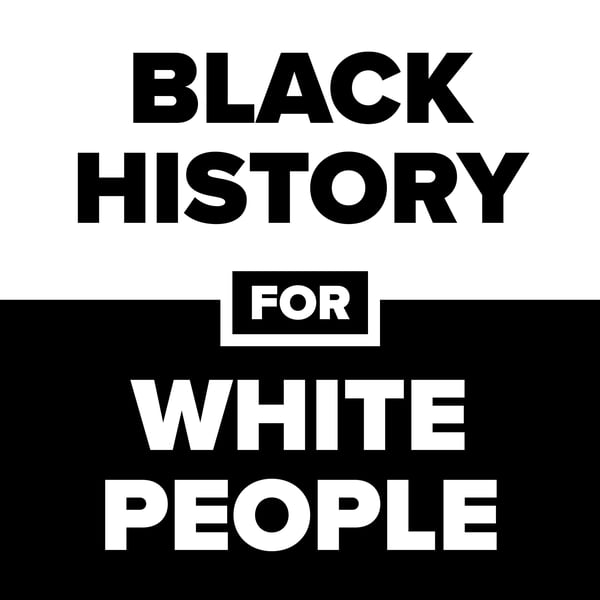Medgar Evers - Part 1
Black History for White People
Black History for White People
3.6 • 719 Ratings
🗓️ 8 February 2023
⏱️ 51 minutes
🧾️ Download transcript
Summary
In today’s episode we are talking about Medgar Evers. Medgar Evers was a Civil Rights activist from Mississippi and highly involved in a lot of different aspects of the Civil Rights Movement. Although his life ended at 38 years old, he made a great impact on the history and trajectory of the United States. Join us as we examine:
- His childhood and family life growing up in Mississippi
- Key moments that shaped his personality and sparked his desire to create change for African Americans in this country
- An in depth look at racism and segregation in the South during the Jim Crow Era
- Events that led to him becoming a part of the Civil Rights Movement
Visit us at blackhistoryforwhitepeople.com + for bonus content, full interviews, and the ability to vote for future topics, $5/month supports us at patreon.com/blackhistoryforwhitepeople.
$5/month supports us at patreon.com/blackhistoryforwhitepeople.
Check us out on Twitter @BHforWP and Instagram @BlackHistoryForWhitePeople or freel free to email us at [email protected].
Support this podcast at — https://redcircle.com/black-history-for-white-people/donations
Advertising Inquiries: https://redcircle.com/brands
Privacy & Opt-Out: https://redcircle.com/privacy
Transcript
Click on a timestamp to play from that location
| 0:00.0 | This means, in the case of an American Negro, born in that glittering republic, |
| 0:09.0 | and in the moment you are born, since you don't know any better, every stick and stone and every face is white, |
| 0:18.0 | and since you have not to get seen a mirror you suppose that you are too. |
| 0:22.6 | It comes as a great shock around the age of five or six or seven. |
| 0:28.6 | To discover the flag which you have pledged to legions along with everybody else |
| 0:33.6 | has not pledged allegiance to the Jew. |
| 0:43.6 | Okay, today we're going to be talking about Medgar Evers. |
| 0:48.3 | I'm sure a lot of our listeners have heard that name before, but Garen introduced us. |
| 0:49.1 | What do we need to know? |
| 0:54.0 | Yeah, Medgars was really involved in a lot of different aspects of the Civil Rights Movement. He showed up |
| 0:55.0 | in a lot of different stories. We've alluded or referenced him in the past in a few of our episodes, |
| 0:59.9 | and so we're going to try to pull together some of those threads by telling his story today. So he was |
| 1:04.9 | born in 1925 as one of seven children, and they grew up poor but never destitute. His father, James Evers, |
| 1:14.0 | was generally respected by the white community and he refused to cower before them. He was a man |
| 1:20.8 | who owned a couple businesses and had land. They had 12 acres. So he had some level of independence from relying on white people |
| 1:32.4 | for his income. And he also had a restaurant that white people would patronize. They enjoyed his food. |
| 1:39.3 | And with that, there was some level of independence and respect that he had where he could maybe get |
| 1:45.4 | away with a little bit more than a lot of people in the black community. Because one of the |
| 1:50.5 | main threats in the South that white people held that was commonly used to suppress black |
| 1:58.0 | voices and black empowerment was the threat of removing employment. |
| 2:03.7 | That was kind of like the first line of white supremacy was if black people showed independence, |
| 2:09.4 | showed initiative, they would lose their jobs and they would remove their employment. |
... |
Please login to see the full transcript.
Disclaimer: The podcast and artwork embedded on this page are from Black History for White People, and are the property of its owner and not affiliated with or endorsed by Tapesearch.
Generated transcripts are the property of Black History for White People and are distributed freely under the Fair Use doctrine. Transcripts generated by Tapesearch are not guaranteed to be accurate.
Copyright © Tapesearch 2025.

